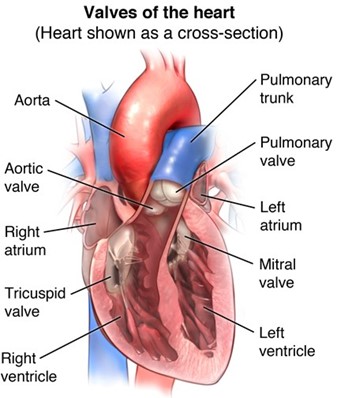Arteries are strong, elastic vessels that carry blood to the heart.
True
False
The Correct Answer is B
The correct answer is choice B. False.
Arteries are strong, elastic vessels that carry blood away from the heart, except for the coronary arteries that supply blood to the heart muscle.
These are the first arteries to branch off the aorta, which is the main artery that takes blood to the body from the left ventricle.
Choice A is wrong because it contradicts the definition of arteries. Arteries carry blood away from the heart, not to the heart.
Nursing Test Bank
Naxlex Comprehensive Predictor Exams
Related Questions
Correct Answer is B
Explanation
Innate defenses counter specific disease-causing agents, whereas adaptive defenses include mechanical and chemical barriers.
Choice A is wrong because it confuses the two types of defenses.
Innate defenses are nonspecific and include physical barriers such as the skin, molecules that are toxic to invaders, and phagocytic cells that ingest invaders.
Adaptive defenses are specific and are activated by the innate immune system.
They involve the production of antibodies and specialized cells that recognize and eliminate specific pathogens.
Normal ranges are not applicable in this question as it is about the definitions of innate and adaptive defenses.
Correct Answer is A
Explanation
The mitral valve lies between the left atrium and left ventricle and prevents the regurgitation of blood from the ventricle back into the atrium.

It has two leaflets that open and close to allow blood to flow from the lungs into the left atrium and then to the left ventricle.
Choice B is wrong because the tricuspid valve lies between the right atrium and right ventricle and prevents the regurgitation of blood from the ventricle back into the atrium.
It has three leaflets that open and close to allow blood to flow from the body into the right atrium and then to the right ventricle.
Choice C is wrong because the pulmonary valve lies between the right ventricle and the pulmonary artery and prevents the regurgitation of blood from the artery back into the ventricle.
It has three leaflets that open and close to allow blood to flow from the right ventricle to the lungs, where it picks up oxygen.
Choice D is wrong because the aortic valve lies between the left ventricle and the aorta and prevents the regurgitation of blood from the aorta back into the ventricle.
It has three leaflets that open and close to allow blood to flow from the left ventricle to the rest of the body.
Whether you are a student looking to ace your exams or a practicing nurse seeking to enhance your expertise , our nursing education contents will empower you with the confidence and competence to make a difference in the lives of patients and become a respected leader in the healthcare field.
Visit Naxlex, invest in your future and unlock endless possibilities with our unparalleled nursing education contents today
Report Wrong Answer on the Current Question
Do you disagree with the answer? If yes, what is your expected answer? Explain.
Kindly be descriptive with the issue you are facing.
